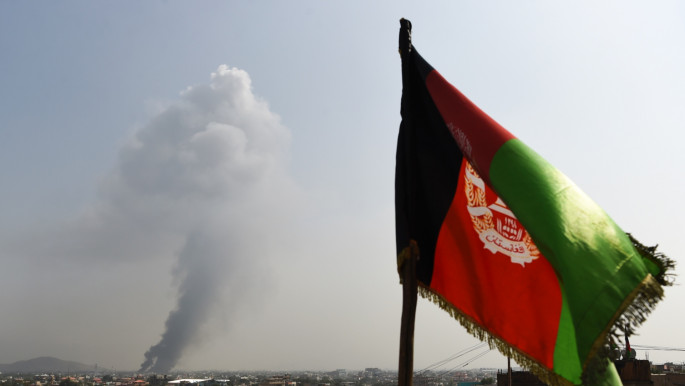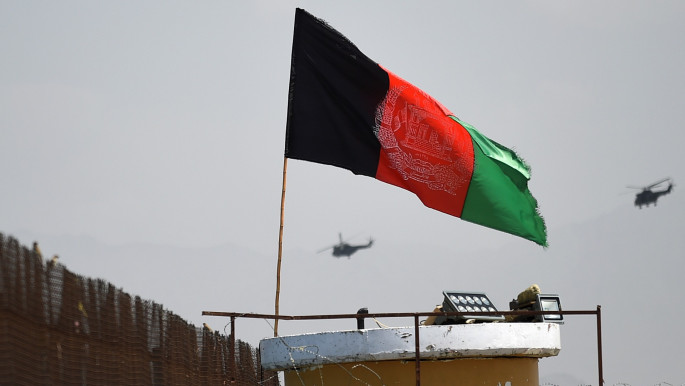India-Pakistan proxy war a real threat in post-US Afghanistan
The first round of intra-Afghan talks, meanwhile, is expected to be held by next week.
For the moment, the real losers in the endgame of Afghanistan's war are as yet undetermined, but the Afghan government, backed by India, has been playing a dangerous game of escalation in order to sabotage US-led efforts to end the 19-year conflict.
The Afghan government sees its political demise in any success of the US-Taliban peace deal, as it would lead to a US withdrawal from the country and the possible re-emergence of a politically powerful and militarily strong Taliban.
The hard-line Islamist group has always termed the Afghan government as a US "puppet" and therefore has held peace negotiations directly with the US in Qatar since 2018.
For its part, New Delhi sees the US-Taliban peace deal as a victory for its arch-rival Pakistan. The government of President Ashraf Ghani is India's key pawn in the Afghan war and has often emerged as a spoiler of peace efforts in the war-ravaged county.
 |
India's interests stand to suffer in a big way after the withdrawal of US troops |  |
But it reversed this strategy following a US decision in May to reduce its troop presence to 8,600 by 15 July. The American announcement sent a clear message to those trying to sabotage peace efforts, either through violence or by engineering political deadlock. Washington also declared that all foreign forces are supposed to withdraw by the second quarter of next year.
"A regional proxy war in Afghanistan is a very real threat," Michael Kugelman, the Deputy Director and Senior Associate for South Asia at the Wilson Center in Washington, told The New Arab.
"One of the biggest concerns about a post-US Afghanistan is that regional players will seek to pursue their respective - and often competing - interests and agendas through the use of proxies. Pakistan has already done this in the past with the Taliban," he added.
 |
|
| Pandemic and violence jeopardise Afghanistan's fragile peace process |
"If there is no peace deal, instability intensifies, and the Taliban continues to strengthen and starts making bigger plays for power, then we can expect India to respond in kind by siding with its own assets in Afghanistan."
India's nightmare in Afghanistan
Any return of the Taliban to the corridors of power in Kabul will be no less than a nightmare for India. Even with the implementation of the US-Taliban peace agreement, New Delhi still sees a bleak future in the war-torn country after the American withdrawal.
India only entered the fray again in Afghanistan after the US invasion in 2001, having been forced out in 1996 when the Taliban seized control of the country.
For India, an anti-Pakistan Kabul backed by the world's superpower had been the ideal environment in which to pursue its strategic agenda over the past 19 years. During that period, New Delhi invested up to $2 billion in efforts to rebuild the war-wracked country. But now, Pakistan's exclusive access and the signing of the US-Taliban deal have dealt a deadly blow to India's role and strategic interests in the country.
"India's interests stand to suffer in a big way after the withdrawal of US troops. For New Delhi, which doesn't want a militarily strong and politically powerful Taliban, this would be a dangerous state of affairs," Kugelman told The New Arab.
 |
Pakistan is currently feeling the heat of a proxy war as regional players actively try to sabotage the US-Taliban peace deal |  |
"Additionally, an increasingly unstable Afghanistan and strong Taliban would constrain India's ability to have a sustained presence on the ground in a country where it has long had close relations with the government and people."
India's proxies
Pakistan is currently feeling the heat of a proxy war as regional players actively try to sabotage the US-Taliban peace deal. In the latest terrorist attack on Pakistan's Stock Exchange compound, seven people, including four assailants and three security guards, were killed on 29 June.
 |
|
| Winners and losers: The future of Afghanistan's fragile peace process |
The Baloch Liberation Army (BLA) claimed responsibility for the attack. Pakistani Prime Minister Imran Khan, in a speech to parliament, said he had "no doubt" India had been involved. Baloch separatists, who are believed to have been one of India's strategic assets in Afghanistan, also claimed attacks on Pakistan's army in May in the country's southwestern Balochistan province.
A key agenda of India's presence in Afghanistan was to 'contain' Pakistan by opening a second front against its arch-rival. India has strategically been well-positioned at Pakistan's northwestern neighbour for the past 18 years to make Islamabad suffer.
After the US withdrawal, India would not be able to keep this second front operational in the presence of a politically and militarily strong Taliban. But it remains to be seen whether India will end this strategy after the US withdrawal or continue it by covert means.
"I'd argue that front could become stronger," Kugelman said. "The departure of US troops from Afghanistan and the inevitable destabilisation that would follow, along with an even-stronger Taliban, would badly undercut India's interests in Afghanistan."
India's presence and its strong ties with the Afghan government have haunted Pakistan on the security front. Islamabad never wanted an India-friendly Kabul and it has been successful in shutting India out of US-Taliban negotiations. In the future, it will also try its best to side-line New Delhi in any post-peace Afghanistan.
Syed Fazl-e-Haider is a contributing analyst at South Asia desk of Wikistrat. He is a freelance columnist and the author of several books including the 'Economic Development of Balochistan'





 Follow the Middle East's top stories in English at The New Arab on Google News
Follow the Middle East's top stories in English at The New Arab on Google News


